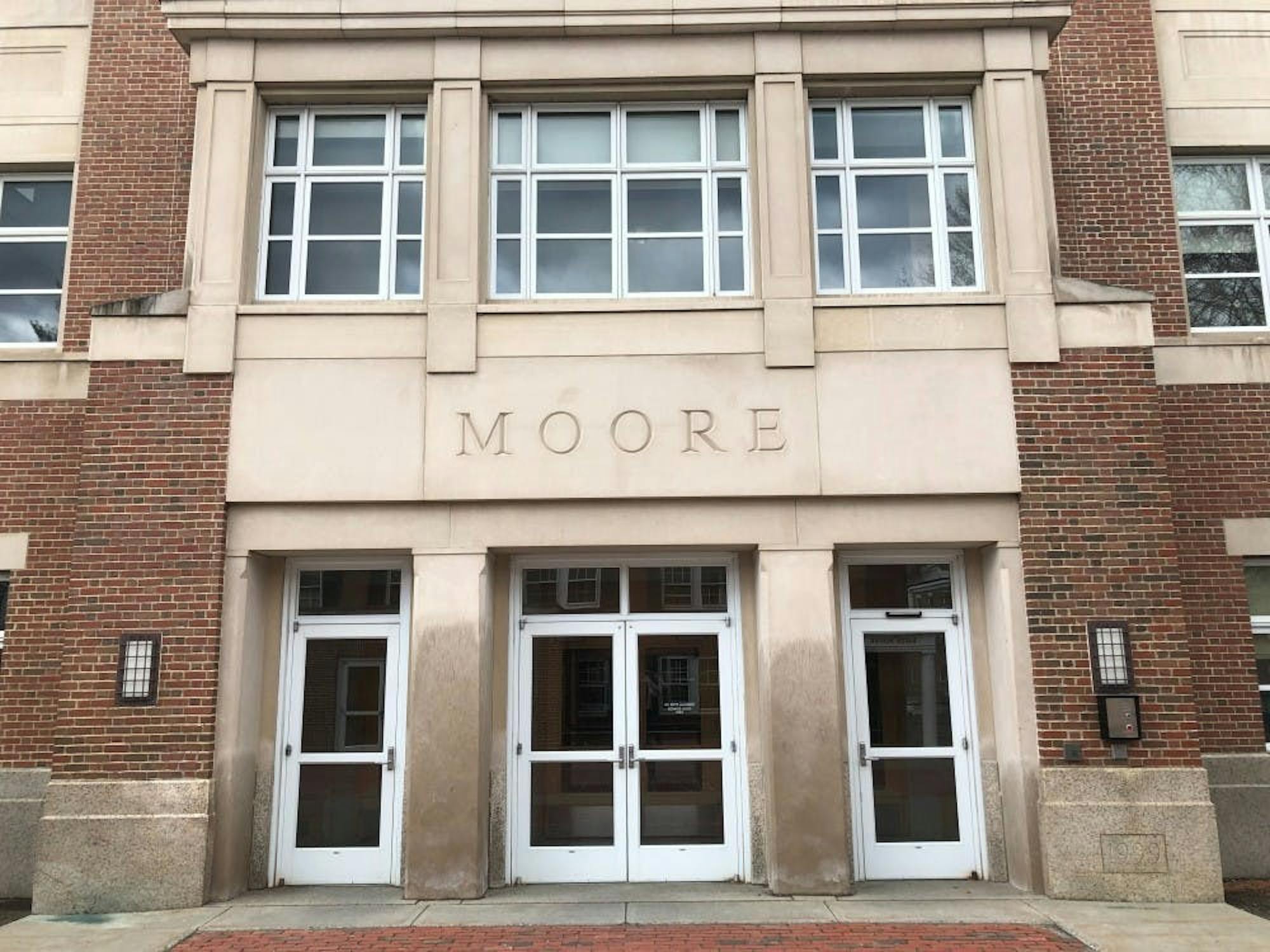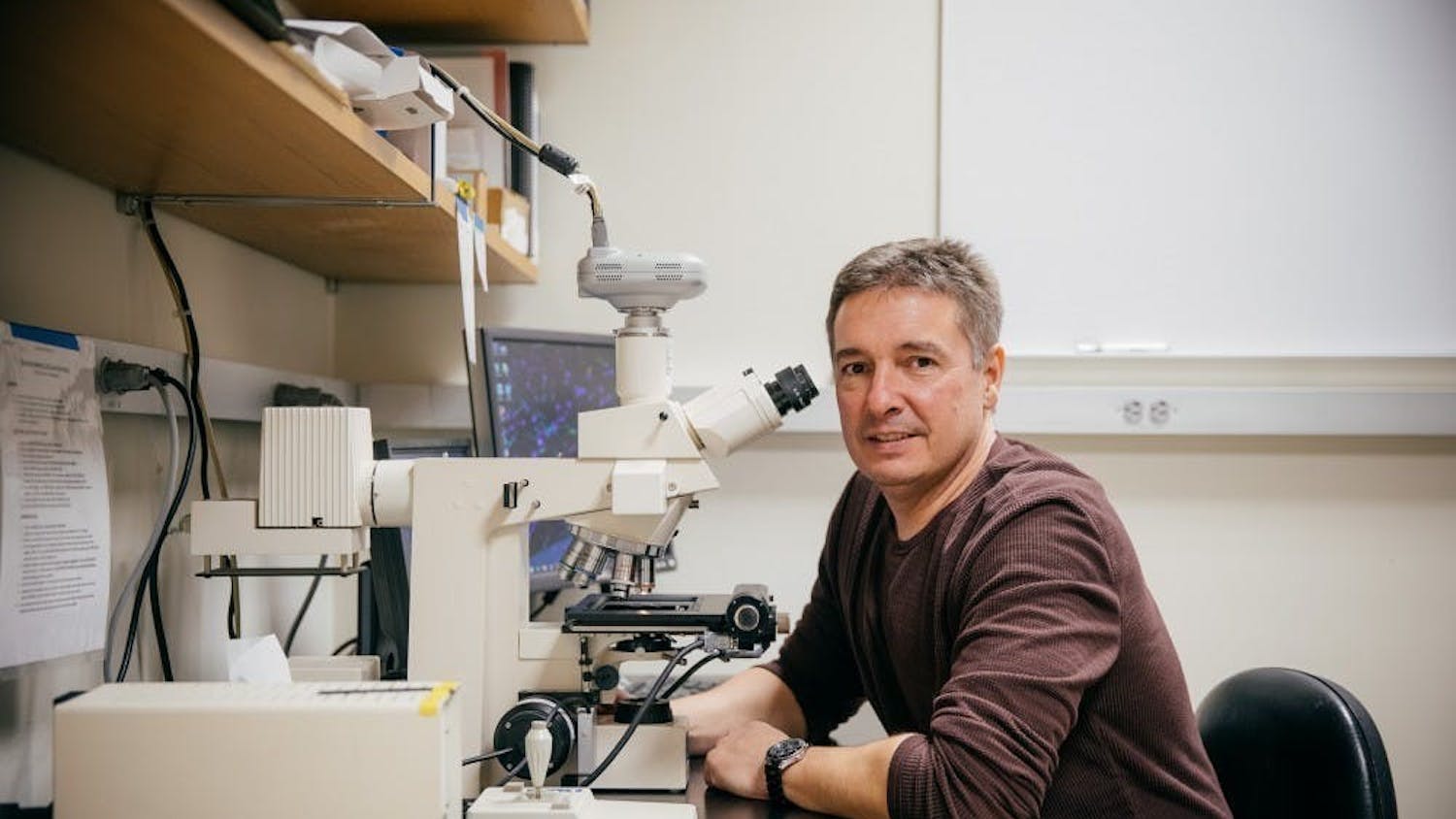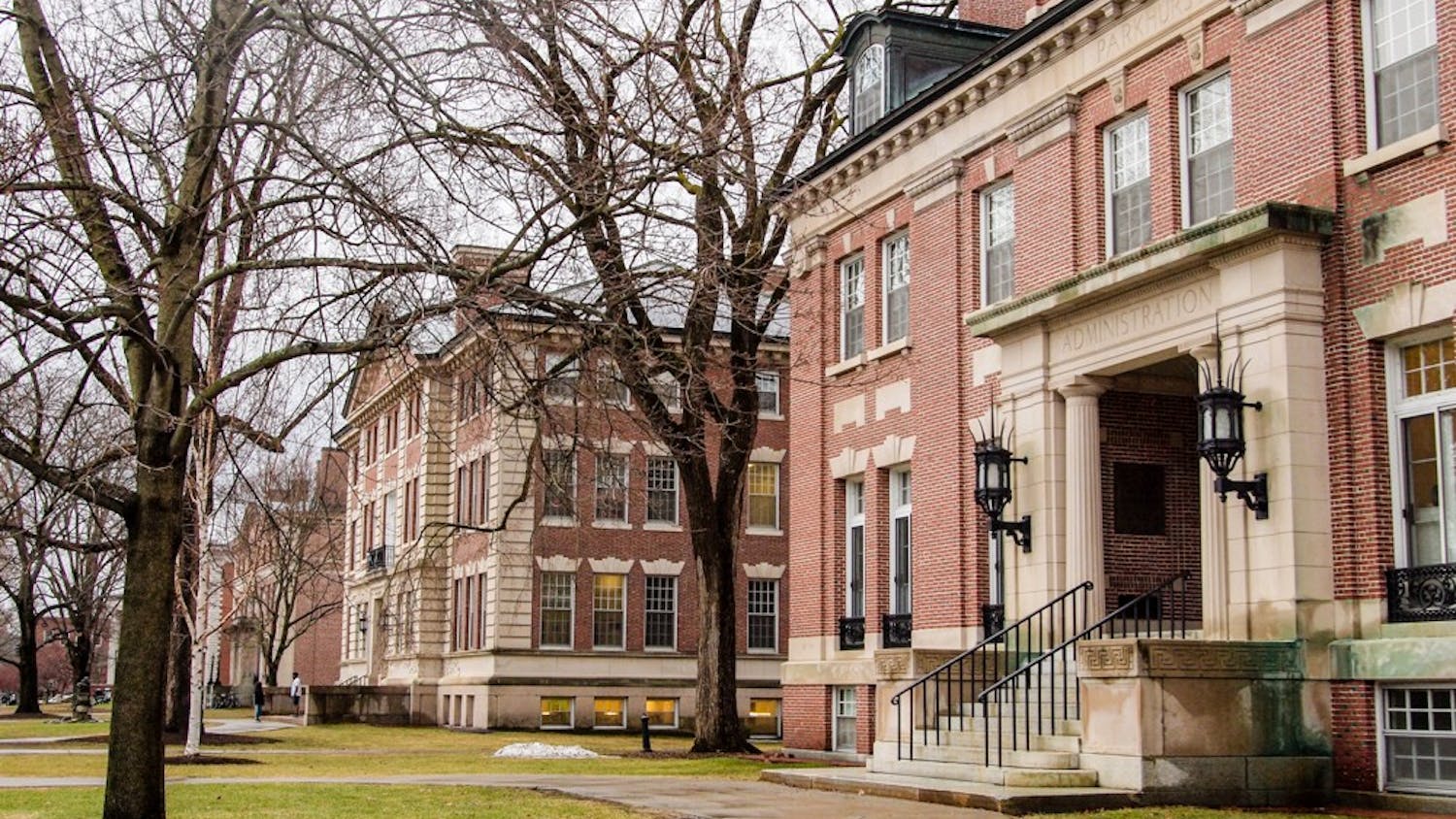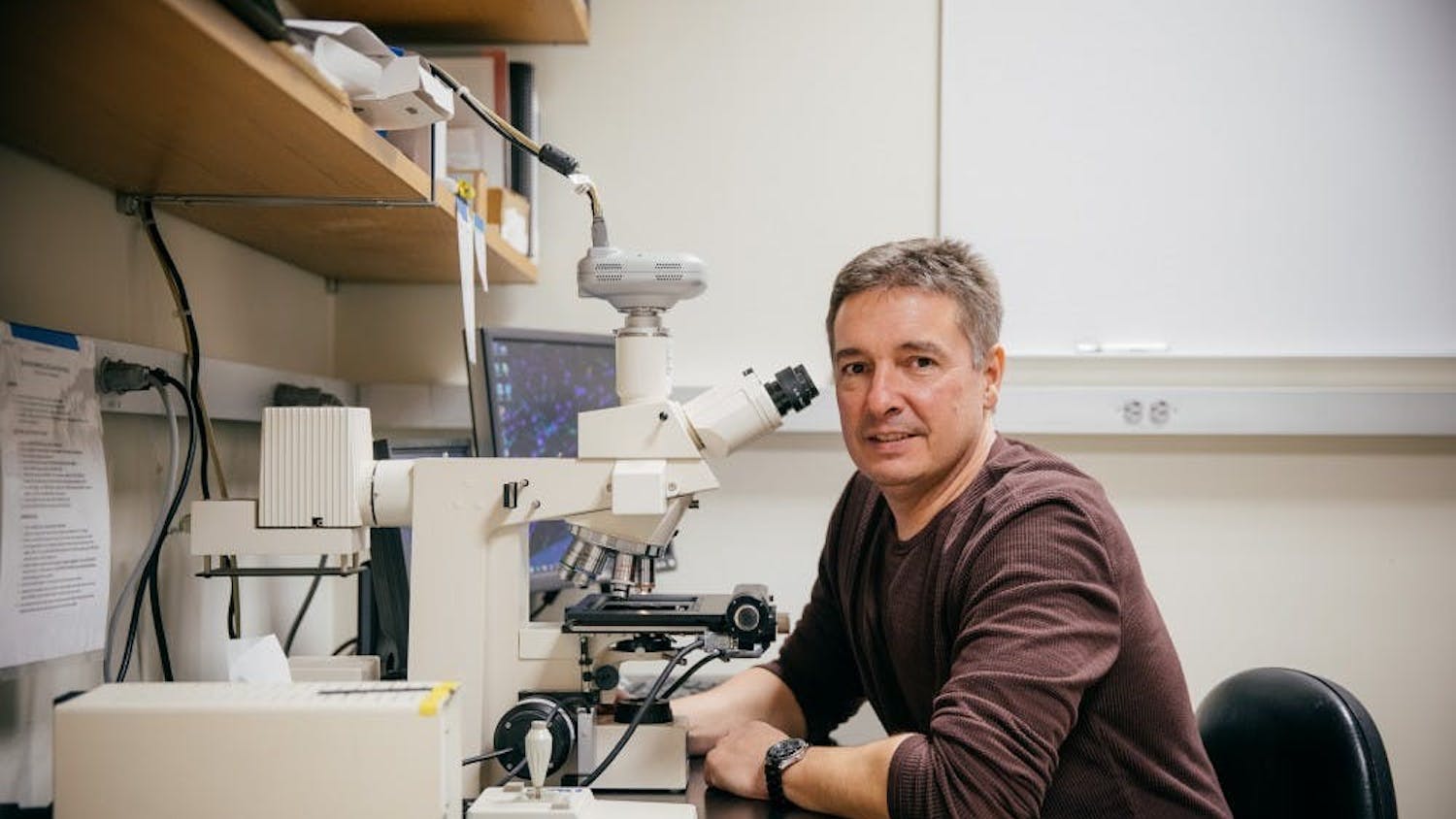A group of more than 30 Dartmouth faculty members wrote a column in the Valley News earlier this week criticizing a Jan. 4 article in The New York Times about the circumstances around the suicide of former psychological and brain sciences chair David Bucci last fall.
In the column, the professors argue that the Times article, written by national correspondent Anemona Hartocollis, excluded “any discussion of the ongoing pain of the young women who were targeted by the predatory behavior of their male professors” as well as what they call a “misogynist culture” in the PBS department and across the College. They also write that the article “leaves the impression that the plaintiffs were #MeToo radicals gone too far,” noting that the plaintiffs have received hate mail blaming them for Bucci’s death since the article was published.
Bucci died by suicide in October 2019, following what had been a tumultuous period for the PBS department. In 2017, Bucci and PBS professor and director of graduate studies Thalia Wheatley first received complaints from students in the department of sexual misconduct. In fall 2017, former PBS professors Todd Heatherton, Bill Kelley and Paul Whalen were put on paid leave; by the summer of 2018, all three had retired or resigned after an investigation had been conducted and College officials concluded that their tenures be revoked.
In November 2018, seven women filed a $70 million class action lawsuit against the College in which Bucci was significantly implicated in the alleged wrongdoings of the PBS department. The lawsuit alleged that Bucci was aware of abuse in the department and did not act sufficiently upon it.
According to the Times article, the College advised Bucci to not speak out and tell his side of the story publicly because they believed the best solution was to let the legal process clear his name. The article, which includes an interview with Bucci’s wife, reports that Bucci grew distressed after being named in the lawsuit and that people close to him believe Bucci was “a casualty of a scorched-earth legal strategy to pin blame on the Ivy League college.”
After reading the Times article, English professor Ivy Schweitzer — who spearheaded the Valley News column with history professor Annelise Orleck — said she felt renewed grief regarding Bucci’s October suicide.
“He was part of our community,” Schweitzer said. “It was reliving the whole sadness again.”
However, she said she then felt angry that the College did not give Bucci an opportunity to tell his side of the story, which she called a “moral failing on the part of the College.”
“When you ‘lawyer up,’ that’s what the lawyers do,” Schweitzer said. “The lawyers are concerned with winning or losing. They’re not concerned with taking an ethical position or a humanitarian position.”
Schweitzer also said she believes that the Times article implies that the lawsuit caused Bucci’s suicide.
“[The article] implied such malice on the part of these nine young women who, I feel, had been victims of abuse by their older professors who were supposed to be their mentors,” Schweitzer said.
The column was published a week after a group of alumni members of the Dartmouth Community against Gender Harassment & Sexual Violence condemned the Times article in a letter to the editor in The Dartmouth. Diana Whitney ’95, the lead author of the letter, said she was appalled by the article and its “victim-blaming angle.” Whitney added that she believes this angle stems from a wider culture that punishes victims of sexual violence when they speak out.
“I was really shocked that the angle of the piece seemed to be to blame and shame the student victims for this tragic suicide,” Whitney said.
Specifically, the line in the Times article about Bucci being “a casualty of a scorched-earth legal strategy” proved problematic for some readers.
According to Anne Pinkney ’20, who serves as executive chair of the Student and Presidential Committee on Sexual Assault, this characterization was “particularly irresponsible,” as it trivialized the pain inflicted by members of the PBS department.
Pinkney added she was disappointed with Hartocollis’ decision to interview Heatherton, one of the three PBS professors who was accused of sexual assault and elected to retire in July 2018.
“[Heatherton] labeled the entire lawsuit as unfair, which I feel is just a gross misunderstanding of what actually occurred at the hands of three tenured professors,” Pinkney said.
The use of Heatherton as a source drew the attention of Whitney and Schweitzer, too. Both pointed to Heatherton’s quote in which he said he was glad to be out of the “toxic” PBS department.
“This is a toxic environment that he allegedly helped create and he helped maintain,” Schweitzer said. “The way in which the article seemed to push the blame away from the perpetrators and onto the plaintiffs — I thought — was unconscionable.”
Pinkney said she supports the Dartmouth faculty members’ response to the Times article and felt that their response was an important addition to the discourse surrounding Bucci’s death. She added, however, that she was disappointed by the lack of a student response to the article’s portrayal of the plaintiffs.
“I think [the Dartmouth faculty members] properly defended the actions of the plaintiffs,” Pinkney said. “[Their response] seemed to be a reminder that the plaintiffs are not at fault for Professor Bucci’s death.”
According to Whitney, DCGHSV members would like the College to show “institutional courage” and issue an apology, show increased accountability and transparency going forward, and investigate more deeply the PBS department and its underlying issues.
Whitney pointed out that it would not be unprecedented for a university to issue this kind of apology. After an investigation concluded in summer 2019 that a psychiatry professor at Yale University had been sexually assaulting students for decades, Yale President Peter Salovey apologized for the professor’s behavior.
Berit is a freshman from Ashburn, Virginia. She is thinking about pursuing a Computer Science or Government major, and decided to join The D because of her love of writing and interest in other people’s stories. In addition to writing for The D, Berit enjoys swimming, hiking, and trying new food.




